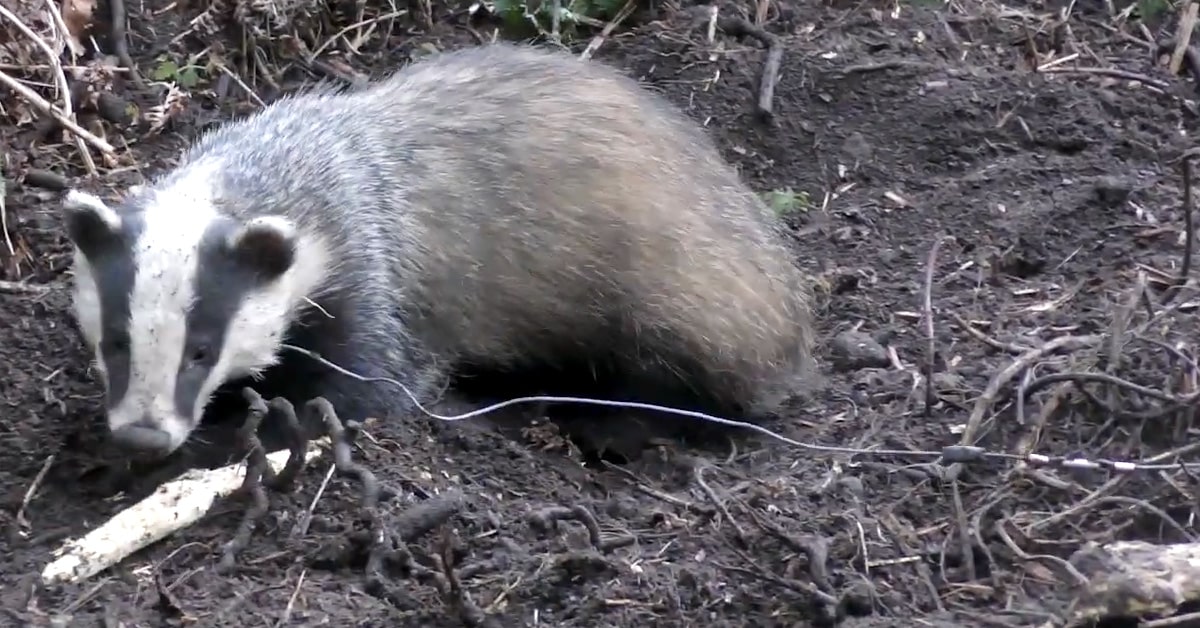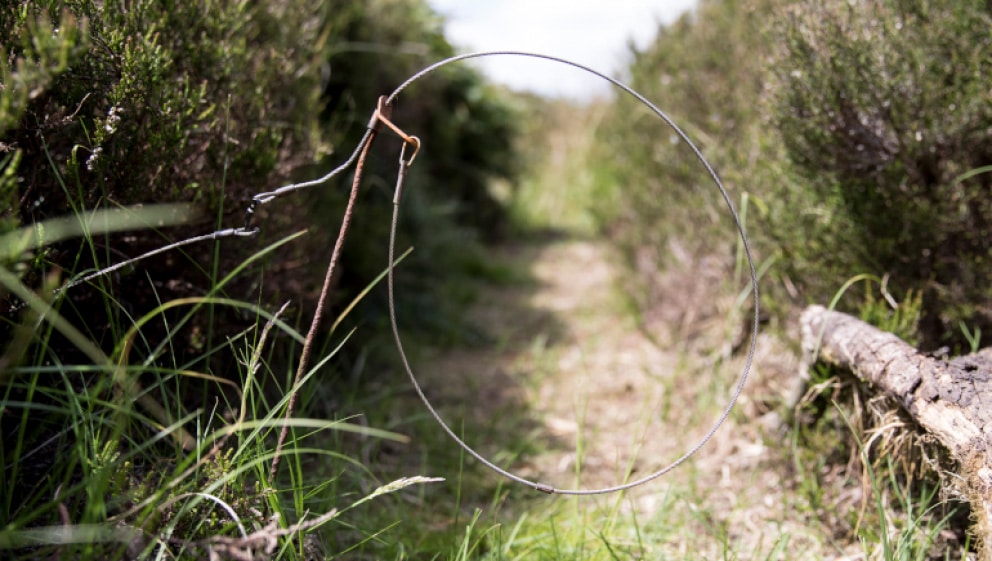Government ministers will debate a ban on snares following a successful petition. The news comes just weeks after the Welsh Assembly agreed to outlaw snares throughout Wales.
The UK government recently announced that it will undertake a debate on criminalising free-running snares on 9 January 2023. It is the result of a petition on the government’s website that garnered more than 100,000 signatures and closed on 9 May 2022. The petitioner asked the government to:
prohibit the sale, use and manufacture of free-running snare… putting them in the same category as self-locking snares, which are already illegal.
It cited snares’ “unnecessary suffering” and “indiscriminate” nature as reasons for banning them.

A government response, given before the petition closed, said that it was to launch a call for evidence on snare use. And the Petitions Committee, which administrates all online petitions, asked the government to launch this call before a date for the debate was set. This call, however, is yet to materialise.
This delay has caused frustration amongst some wildlife advocates. Animal Aid, who are campaigning against snare-use, told Protect the Wild that:
The government must stop procrastinating and propping up the shooting industry by allowing snares to be used.
Meanwhile, Simon Wild of the National Anti-Snaring Campaign (NASC) told Protect the Wild that it hopes the success of the debate will finally “push DEFRA into launching its ‘Call for Evidence of snaring’ that we were promised last April”.
Nonetheless, these and other groups see the Westminster Hall debate as an important step forward in the campaign to ban snares.
The evidence is clear
NASC, which started a similar petition that fell just shy of the 100,000 threshold, commissioned a report on snares in “anticipation of the evidential request” by the government. The 85-page Review of the use of snares in the United Kingdom, put together by Professor Stephen Harris, contains used “all available data” to put forward the strongest case possible for their criminalisation. Wild said NASC also:
commissioned laboratory studies into the force required to break the weak link of the “breakaway snare” that the shooting lobby has devised to allow non target badgers to escape fox snares. That force equates to eleven stone, and all falling on 2mm of wire. While we know that many of the 70% of badgers that do not escape get injured, there is no data on what happens to those that do!
As a result, Wild is confident that the case against snares will push through. “I have no doubt this debate will be the start of a process that will see snares banned in England – so I very much welcome it,” he said.

Animal Aid are similarly positive about the impact of the debate. It told Protect the Wild that:
We have waited a long time to get this debate on banning snares into Westminster and we are relieved that it is now timetabled. The debate will give us the opportunity to directly address the Minister and put our case that snares are cruel and that a ban is long overdue.
This is the start of the process and we’ll continue to campaign for a total ban on snares.
And Rob Pownall of Protect the Wild commented:
It’s positive to see that there will at least be some parliamentary attention drawn to this important topic. For too long these cruel and indiscriminate devices have plagued the British countryside and it is beyond evident that an immediate ban is needed. While debates can sometimes feel ineffectual they still represent an important milestone in this campaign and the wider steps being taken to protect wildlife across the UK. Protect the Wild is proud to have played a part in pushing the petition to the 100,000 milestone and will continue to support calls for a ban on free running snares.
Just the beginning
The Welsh Assembly announced in September that it will introduce a complete ban on the use of snares and glue traps. The move, which is part of the government’s Welsh Agriculture Bill, was taken in recognition of the fact that snares are indiscriminate and cause immense suffering to those caught.
Representatives of the hunting and shooting industries hit out at the decision. Both the British Association of Shooting and Conservation (BASC) and Countryside Alliance state that their opposition to the ban rests on a belief that an existing code of best practice for snare use, renewed in 2015, provides adequate measures to ensure high standards of animal welfare. However, the Welsh government advised as early as 2017 that it would regularly review the use of snares as more data became available.
The BASC said that it opposed the ban because snares:
are an important method of control to protect young livestock in addition to ensuring the success of biodiversity and conservation work.
And the Countryside Alliance claimed a snare ban would have a “negative impact… on biodiversity in Wales”. It provided familiar talking points such as protection of curlews and lambs as examples.
It’s fair to assume that these organisations will take a similar position on the Westminster Hall debate.
Nonetheless, the Welsh government’s decision was warmly welcomed by wildlife advocates, and see it as strong evidence supporting a Westminster ban. “Westminster must follow [Wales] with a complete ban on snares in England,” Animal Aid said. And Wild agreed, saying the Welsh government:
has accepted that codes of practice do not work and that snares are inherently inhumane.
Westminster has some catching up to do.
It’s worth noting that snares are already illegal throughout much of Europe.
Westminster Hall debates don’t have a record of leading directly to legislative changes. But the fact this issue has reached a formal parliamentary debate is a sign that our understanding of how we treat non-human animals is changing. And it’s a sign that an end to the horror of snares is within our reach.
Featured image via Hunt Investigation Team. Additional images via Hunt Investigation Team/YouTube and League Against Cruel Sports/YouTube.

